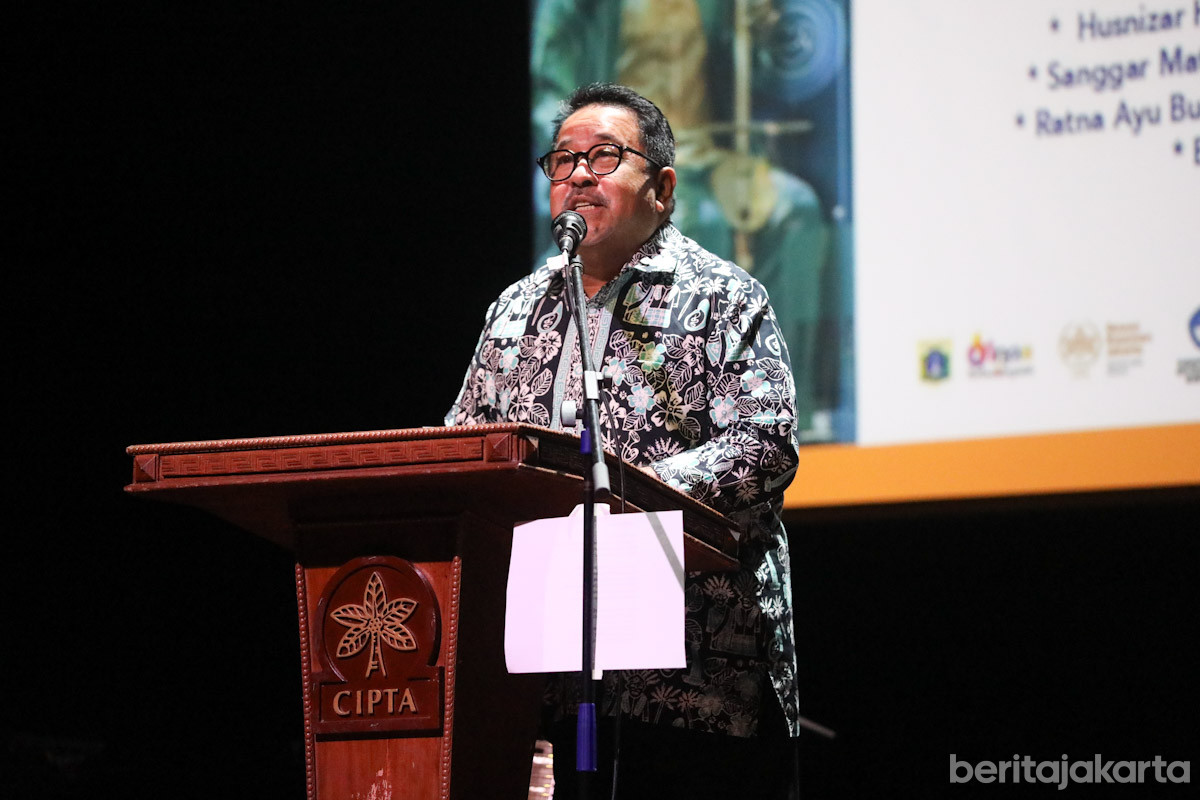

Saturday, September 13th 2025 Reporter: Budhi Firmansyah Surapati Translator: Nugroho Adibrata 1503

(Foto: Mochamad Tresna Suheryanto)
Jakarta Deputy Governor, Rano Karno, delivered a speech on culture during the XIII Nusantara Poets Gathering at the Small Theater of Taman Ismail Marzuki (TIM), Cikini, Menteng, Central Jakarta.
Because I am also an artist, I don't want to give a speech
Activities attended by 128 participants and 70 poet observers from all over Indonesia, also attended by representatives of poets from ASEAN countries.
"Because I am also an artist, I don't want to give a speech. Is it okay if I give a cultural speech instead?," he spoke in front of the audience, Friday (9/12) night.
In the cultural speech delivered, he raised the theme of Jakarta as a Global Literary City. With an touching and meaningful tone, he began his speech by greeting and appreciating the activity.
He explained, Jakarta is a city that is willing to listen, embrace differences, and be open to anyone who comes with good intentions. According to him, this character is inseparable from Jakarta's culture, which is built on heterogeneity and even able to embrace differences, allowing it to grow as an epicenter of artistic and cultural development.
Jakarta has also received recognition from UNESCO in 2021 as a City of Literature. According to him, this award is not just a achievement, but also a responsibility for Jakarta to maintain and expand its literary ecosystem through schools by opening reading windows, parks that provide seats to enjoy the sunset, libraries that fearlessly open their catalogs, publishers willing to try new authors, and stages that are friendly to poetry and word music performances.
As Jakarta no longer remains the capital city, it is transforming into a global city and is currently working hard to enter the top 20 by the year 2045. However, it is ensured that the development conducted will not leave behind its unique characteristics and culture.
He assured that culture is not just a complement to development but a driving force of the creative economy. Because Jakarta's development towards a global city will surely maintain policies that treat culture as infrastructure that conveys meaning, just as pipes carry water.
To realize it, Rano has developed a concept together with Jakarta Governor Pramono Anung as a series of work steps. First, Jakarta will revive the concept of parks as gathering places for residents, not just city decorations, by increasing "third spaces" such as parks, community halls, and reading corners that facilitate cross-identity gatherings.
According to him, the park is prepared as a venue for acoustic performances alongside poetry readings, a free writing class area neighboring women's exercise classes, and a place for children to touch their first books without fear of making mistakes. Second, he wants to strengthen the literacy ecosystem: expanding writer residency programs and promoting "book diplomacy" with partner cities.
The third is to design a credible and inclusive literary award model. In doing so, he emphasizes that awards are not merely the "top of the podium," but rather a system that drives quality, fosters discussion, and provides a calendar for the public to look forward to the best works.
Therefore, the awarding must also be accompanied by workshops, curations, and public discussions as a learning process for a city like Jakarta. Hence, he expressed appreciation for this PPN XIII event, which specifically highlights this discussion in an engaging way.
Steering Committee Chair for 13th Nusantara Poets Meeting, Imam Ma'arif, appreciated the Jakarta Government's support for the event held at four locations: TIM, National Library, Monas, and the Language Agency Rawamangun.
It was also attended by participants from ASEAN countries such as Brunei Darussalam, Malaysia, Thailand, and Singapore. He hopes that this meeting will not only be a reunion but also produce resolutions for current social situations, from national to international levels.
"We must consider Indonesia's condition with real actions. The poet's struggle is not with weapons, protests, and demonstrations, but with words," he closed.